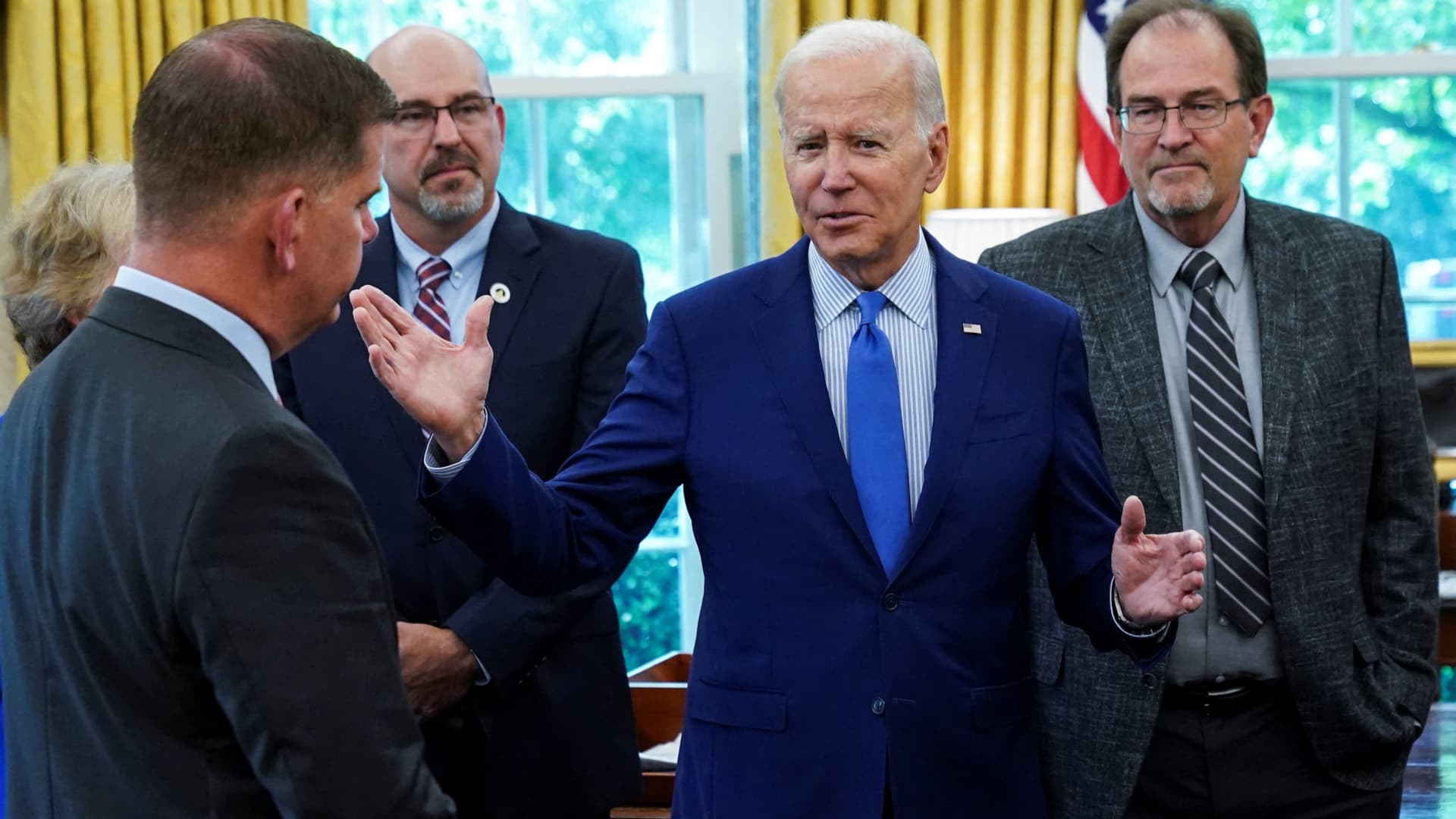Today, the Supreme Court of the United States will decide if Oklahoma will have to execute Richard Glossip, a man so obviously innocent that Gentner Drummond, Oklahoma’s very Republican state attorney general, is begging them to not make the state kill him, while at least one Republican in the Legislature has said that if Glossip is executed, he will change his mind about the death penalty entirely.
Glossip was not convicted or accused of killing anyone. Rather, he was convicted of the “murder-for-hire” of motel owner Barry Van Treese, despite the fact that he was never, in fact, even accused of handing anyone money and going, “Here you go! Now go kill Barry Van Treese!” Justin Sneed, the itinerant, meth-addicted worker who actually did kill him, was only sentenced to life in prison. And Sneed’s testimony, for which he was promised a life sentence instead of the death penalty, is one of the only two pieces of evidence against Glossip, the other one being that Glossip had $1200 in cash (that was in no way connected to anything in this case).
Confused? You should be! Because there is not one thing about this case that makes any sense at all.
Should you need more of a refresh, we have a few stories about Glossip’s case …
AG Drummond previously asked the Oklahoma state supreme court to vacate the conviction, which they refused to do. Legislators have begged Governor Kevin Stitt to pardon him or do something, and Stitt, who we already know has no compunction about executing the innocent, refused. Now the state is taking the case to the United States Supreme Court and hoping they will, quite literally, stop them before they kill again.
Granted, Drummond swears that he doesn’t think Glossip is innocent, just that he doesn’t think he got a fair trial — which he did not.
The Court is meant to weigh in on a few things — the first being whether they have jurisdiction to weigh in on it at all. Christopher Michel — a former clerk to Chief Justice John Roberts who was initially appointed by the Oklahoma supreme court to oppose vacating Glossip’s conviction, because of how the state itself was the one arguing in favor of it — says they do not.
Via SCOTUSblog:
Michel contends that the Supreme Court cannot consider Glossip’s claims because the state court resolved them on a “paradigmatic” adequate and independent state ground: It held that Glossip’s claims were barred by a state law that prohibits courts in capital cases from reviewing issues that a prisoner could have raised earlier. In doing so, he writes, the state court applied that law “essentially verbatim” in its opinion, without referring to federal law.
Glossip, however, is arguing that the court did rely on federal law to come to its ultimate conclusion — “specifically, the Supreme Court’s 1963 decision in Brady v. Maryland, which requires prosecutors to turn over any evidence that is favorable to the defendant and could affect the decision about guilt or punishment, and its 1959 decision in Napue v. Illinois, holding that if prosecutors obtain a conviction using what they know is false testimony, the conviction must be set aside if there is ‘any reasonable likelihood’ that the false testimony could have affected the jury’s decision.”
Should the Court decide it can intervene, it will decide if prosecutors in the case did not disclose evidence that could have helped Glossip or if they allowed false testimony in.
Glossip contends that the prosecution did not disclose that Sneed had significant mental health issues that could have affected the accuracy of his testimony, or that he was on and had been prescribed lithium at the time.
I mean, there’s also the fact that there is actual video of the cops making up Sneed’s entire testimony for him and telling him that if he agrees that’s what happened and testifies to that fact, he won’t get the death penalty, but for some reason that’s not enough for anyone in his various trials.
Michel says that just because the prosecutors wrote “On lithium?” and referenced a doctor in their notes on Sneed doesn’t mean that they knew he was on lithium at the time, insisting that it was “cryptic.”
Drummond is also arguing that the state court not considering his judgment as attorney general that Glossip’s trial was unfair “sends a terrible signal to litigants by suggesting that the courts have a vested interest in preserving their ‘own’ convictions.” Michel says that the state court has no obligation to consider Drummond’s opinion.
This current iteration of the US Supreme Court has not been friendly to the wrongfully convicted — having found in 2022 that evidence of actual innocence is no reason to not execute someone (following Antonin Scalia from back in the day) — however, Justice Neil Gorsuch is recusing himself, as he was on the 10th Circuit Court of Appeals when Glossip appealed his case there, so perhaps that could give Glossip a better shot.
Glossip has so far avoided nine execution dates and been served three last meals. If Drummond can’t save him despite the absolute absurdity of the case against him and the way the prosecutors in the case mishandled it — if he is ultimately served a fourth last meal — it’s not clear what chance there is for anyone in our legal system.
























































![Key Metrics for Social Media Marketing [Infographic] Key Metrics for Social Media Marketing [Infographic]](https://www.socialmediatoday.com/imgproxy/nP1lliSbrTbUmhFV6RdAz9qJZFvsstq3IG6orLUMMls/g:ce/rs:fit:770:435/bG9jYWw6Ly8vZGl2ZWltYWdlL3NvY2lhbF9tZWRpYV9yb2lfaW5vZ3JhcGhpYzIucG5n.webp)























